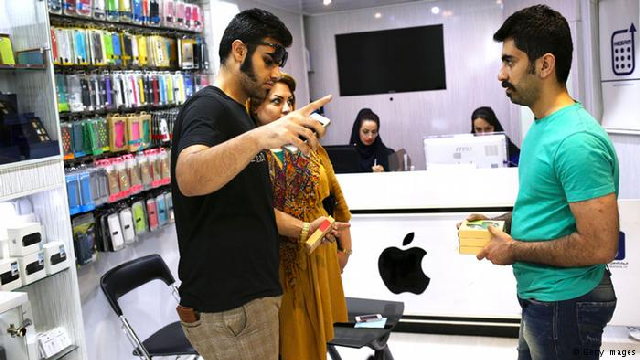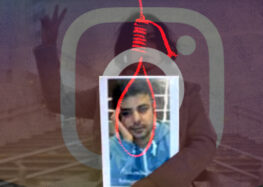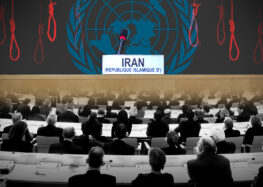Real Target of Tehran’s Demand for Apple to Open Office in Iran is US Sanctions

Tehran’s recent ultimatum to Apple, the US tech giant, to open up an office in Iran or face a ban on Apple products in the country, was presented as a bid to end the loss of tax revenue from millions of iPhones smuggled into Iran, but its real goal is to break through the wall of US sanctions still blocking investment in Iran.
“If [Apple] does not register an official representative office in Iran, all phones produced by this company will be confiscated from stores,” said Abbas Nakhaei, head of the Anti-Smuggling Task Force, in an interview with the hardline Tasnim News Agency on July 17, 2016.
Bringing Apple officially into the country would be a huge victory for Iran, which has argued that the benefits of signing the nuclear deal and the easing of international sanctions have not brought the expected foreign investment into the country.
While Iran can now sell its oil, and non-US companies can set up shop in Iran, US companies—some of which are much sought after—are still effectively prevented from entering Iran due to remaining US sanctions against the Islamic Republic.
The pretext for the current Iranian demand is a legitimate desire to end the massive smuggling of IPhones into the country, which deprives Tehran of needed tax revenue. The iPhone is popular among Iranians, with an estimated six million active users according to a July 20, 2016 report in Iran’s Donya-e-Eghtesad newspaper. But these phones are brought largely via Dubai, depriving Iran of the tax income.
The bigger goal is to break through the barriers preventing US companies from entering Iran. If Apple resolves the technical and legal issues preventing US investment in Iran and comes, Tehran knows others will follow. By putting pressure on Apple to comply or risk losing its Iranian business, the Islamic Republic is trying to force their hand and open the door for other US companies to enter the Iranian market.
Apple may be unlikely to comply, at least in the near term; it would be surprising if they were to risk the legal and financial repercussions of US sanctions violations before any compliance concerns were thoroughly allayed.
The US government has argued any difficulties Iran is having attracting foreign business are of its own making, due to the country’s obsolete banking sector and opaque business environment. But continued US sanctions against the Islamic Republic related to human rights, terrorism, and Iran’s ballistic missile program, as well as restrictions on US commerce with Iran and dollar-denominated trade, has chilled the foreign investment climate in Iran.
In addition to the ultimatum to Apple, Iran’s Anti-Smuggling Task Force said all iPhone users in Iran must register their phones within the next few weeks. Every mobile phone has a unique International Mobile Equipment Identity (IMEI) number. If iPhone owners do not register that number by September 22, 2016, the authorities said they would cut service to their phones. Retailers are also being required to register all new iPhones.
“Retail stores are not permitted to sell any brand that has not been registered with the Industries, Mines and Trade Ministry, [if they sell unregistered phones] they will be dealt with,” said Karimi Khorasani, chairman of the Telecommunication Retailers Union, on July 21, 2016.
However, there is clear disagreement in Iran regarding the viability of this plan between those making policy and those charged with its technical implementation.
On July 23, 2016, the Head of the Communication Ministry’s Public Relations and Information department announced a delay in registering cell phones due to a lack of preparation of its prerequisites. But on July 25 Ghassem Khorshidi, the spokesperson for Iran’s Anti Smuggling Headquarters announced its trial start. According to Mr. Khorshidi, beginning on July 24, all cellular phone service providers will be implementing this project on 100 of their cell phone numbers on a two-month trial basis.
The government attempted to require all mobile phone owners to register their phones in 2006 to combat smuggling, but “it did not succeed because mobile operators refused to cooperate,” said Alireza Golestani, the deputy head of the Central Taskforce to Combat Smuggling of Commodities and Foreign Exchange, on October 30, 2015.
An Apple retailer in Tehran who asked not to be identified told the International Campaign for Human Rights in Iran that since the announcement against Apple, the price of iPhones being sold in his store have increased by about 10 percent even though the product’s future is shrouded in a cloud.






